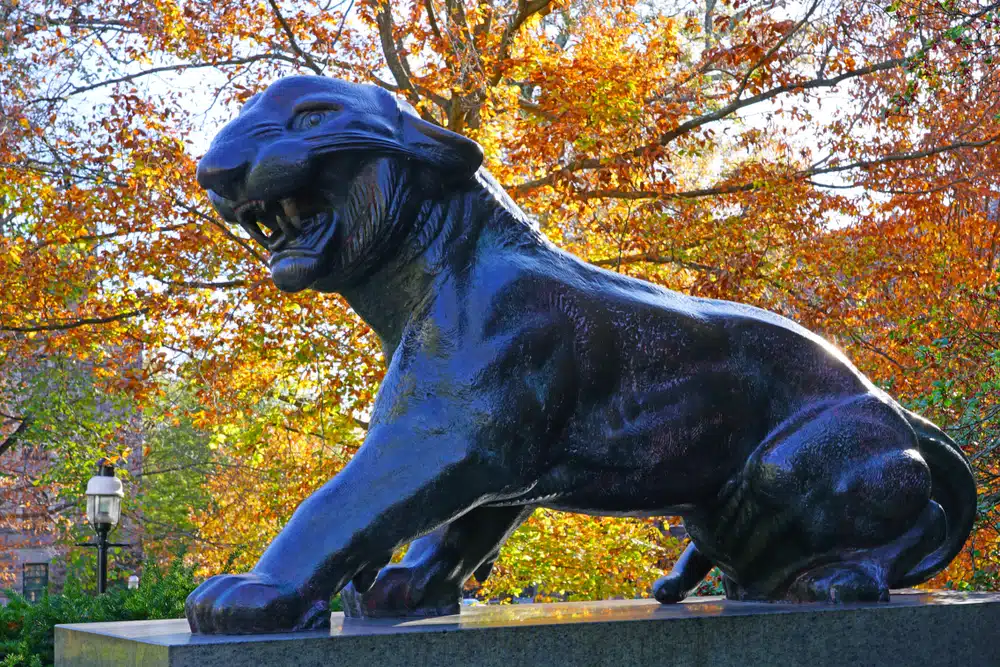What are the Unique Courses at Princeton?
Princeton University, renowned for its commitment to undergraduate teaching, offers an expansive curriculum in the arts and sciences. Additionally, the University also provides a variety of different courses and programs.
Princeton allows its students to explore unique courses through its innovative academic structure and interdisciplinary approach.
Understanding Princeton University’s Academic Structure
The academic structure at Princeton is built around its departments and programs. Each subject field comes under a department responsible for formulating and delivering the course curriculum. Furthermore, each department also oversees the administration and evaluation of its courses.
Princeton University takes great pride in its academic structure, designed to provide students with a comprehensive and well-rounded education. The departments at Princeton are comprised of renowned faculty members who are experts in their respective fields. These faculty members bring their wealth of knowledge, experience, and resources to create a rich and immersive learning experience for the students.
Regarding departments and programs, they play a significant role in shaping the students’ academic journey. The departments are responsible for developing and maintaining the curriculum for their respective subject areas. They carefully design courses that are rigorous, engaging, and intellectually stimulating.
The Role of Departments
Departments at Princeton University are at the forefront of academic excellence. They are responsible for cultivating a vibrant intellectual community within their respective fields. The faculty members within each department are dedicated teachers and active researchers, pushing the boundaries of knowledge in their disciplines.
Students who choose to major in a specific subject area will be immersed in a department that offers a wide range of courses, seminars, and research opportunities. These departments foster a supportive and collaborative environment where students can engage in deep intellectual discussions with their peers and professors.
The Role of Programs
In addition to departments, Princeton University also offers various interdisciplinary programs. These programs bridge two or more academic disciplines, allowing students to explore a wider field of study and gain a more multifaceted understanding of the subject matter.
Programs at Princeton allow students to engage in interdisciplinary studies, an essential component of the University’s academic structure. These studies integrate knowledge and methods from different disciplines, using a synthetic approach to address complex issues or subjects.
By participating in interdisciplinary programs, students can broaden their perspectives and develop critical thinking skills that transcend traditional disciplinary boundaries. These programs encourage students to think creatively, make connections between different fields of study, and tackle real-world problems from multiple angles.
Interdisciplinary Studies at Princeton
Princeton University is known for its commitment to interdisciplinary studies. These studies complement traditional discipline-focused studies by providing students with more opportunities for learning and discovery.
One example of interdisciplinary studies at Princeton is the Program in European Cultural Studies. This program combines literature, history, and art to examine European culture from various perspectives. Students in this program gain a deep understanding of the complexities and nuances of European culture, exploring its historical, social, and artistic dimensions.
Another example is the Program in Environmental Studies, where students learn to address environmental challenges from scientific, policy, and ethical perspectives. This program equips students with the knowledge and skills to tackle complex environmental issues like climate change, biodiversity loss, and sustainable development.
These interdisciplinary programs at Princeton University provide students with unique opportunities to engage in cutting-edge research, collaborate with faculty members from different disciplines, and contribute to advancing knowledge in their chosen fields.
Exploring Unique Undergraduate Courses
Princeton University offers a wide range of unique undergraduate courses that cater to the varied interests of its students. Plenty of unconventional and innovative courses exist whether you are interested in the humanities, sciences, or social sciences.
Unconventional Humanities Courses
The humanities section at Princeton offers a diverse range of unconventional courses that will challenge your perspectives and broaden your understanding of the world.
One notable example is the course “Myth, History, and Contemporary Art,” where students examine contemporary art about myth and history. Students gain a deeper appreciation for how artists draw inspiration from ancient myths and historical events by analyzing various artworks.
Another fascinating course offered in the humanities department is “The Bible as Literature.” This course introduces students to biblical texts as a work of literature, exploring the rich storytelling techniques and themes. By studying biblical narratives from a literary perspective, students gain insights into the historical and cultural contexts in which these texts were written.
Innovative Science and Technology Courses
Suppose you have a passion for science and technology. In that case, Princeton’s science and technology departments offer genuinely innovative courses to ignite your curiosity and expand your knowledge in these fields.
One such course is “The Science of Mythbusters,” where students delve into the scientific accuracy of the popular television show. By examining the experiments conducted on the show, students learn about the physics, chemistry, and engineering principles underpinning each myth. Through hands-on experiments and critical analysis, students develop a deeper understanding of the scientific method and the importance of evidence-based reasoning.
For those interested in robotics and artificial intelligence, the course “Robotics and Intelligent Systems” provides a comprehensive exploration of the design and utility of robotic systems. Students learn about the principles of robotics, including sensing, perception, and control. Through hands-on projects, they can design and build their robots, gaining practical skills that are highly sought after in today’s technological landscape.
Unique Social Science Courses
The social science departments at Princeton offer a variety of unique courses that delve into the complexities of human behavior, society, and culture.
One such course is “The Ethics of Identity: Race, Sex, and Gender,” which explores the social, philosophical, and legal questions surrounding identity. Through examining case studies and engaging in thoughtful discussions, students critically analyze the ethical implications of identity formation and its impact on individuals and society.
Another intriguing course is “The Sociology of the Internet,” which focuses on the impact of the Internet on society and culture. Students explore topics such as online communities, digital activism, and the influence of social media on interpersonal relationships. By examining the sociological aspects of the Internet, students gain a deeper understanding of how technology shapes our lives and interactions in the modern world.
These are just a few examples of the unique undergraduate courses at Princeton University. With such a diverse range of options, students can explore their passions and pursue knowledge in unconventional and fascinating areas of study.
Delving into Unique Graduate Courses
Beyond its undergraduate offerings, Princeton University has many unique graduate courses for advanced study.
Princeton University prides itself on offering diverse graduate courses that cater to its students’ specific interests and passions. These programs allow individuals to delve deeper into their chosen fields and comprehensively understand the subject.
Specialized Masters Programs
The University’s master’s programs offer opportunities for specialized study in many territories. “The Quantum Technologies Master’s Program” gives students a comprehensive understanding of quantum technology’s current and potential applications. This program explores the theoretical aspects of quantum technology and provides hands-on experience through laboratory work and research projects.
Meanwhile, “Master in Public Affairs” focuses on preparing students for public service by developing their understanding of economic, political, and social issues. Through coursework, internships, and practical experiences, students gain the skills and knowledge necessary to address complex public policy challenges.
Princeton University recognizes the importance of equipping graduates with the necessary skills to excel in their chosen fields. Therefore, these specialized master’s programs are designed to give students a competitive edge in the job market and prepare them for leadership roles.
Unique Doctoral Programs
Princeton’s doctoral programs are among the most respected globally. These programs allow students to carve their unique research paths and significantly contribute to their respective fields.
Programs like “Doctoral Program in Neuroscience” engage students in understanding the neural basis of cognitive functions. Through cutting-edge research and interdisciplinary collaborations, students explore the complexities of the human brain and contribute to advancements in neuroscience.
On the other hand, “Doctoral Program in Architecture” aims at pushing the boundaries of architectural research and design. Students in this program can explore innovative approaches to sustainable architecture, urban planning, and historic preservation.
Princeton University’s commitment to academic excellence is evident in its doctoral programs, which foster a culture of intellectual curiosity and encourage students to pursue groundbreaking research.
The Benefits of Unique Courses at Princeton
Princeton’s unique courses offer several benefits to its students, from enhancing their critical thinking skills to encouraging creativity and innovation.
When enhancing critical thinking skills, Princeton goes above and beyond. The University’s courses are designed to nurture the students’ ability to think critically by requiring them to engage in deep analysis, problem-solving, and logical reasoning. Through interactive learning sessions, students are encouraged to actively participate in discussions and debates, challenging their ideas and those of their peers. This collaborative approach broadens their perspectives and sharpens their analytical skills.
But it doesn’t stop there. Princeton believes in the power of hands-on learning. That’s why many of their courses incorporate project-based assignments, where students can apply their critical thinking skills to real-world scenarios. Whether designing a sustainable urban plan or creating a marketing campaign for a local nonprofit, these assignments push students to think creatively and find innovative solutions to complex problems.
Additionally, Princeton takes a unique approach to examinations. Instead of relying solely on traditional multiple-choice tests, the University embraces open-ended examinations that test students’ ability to synthesize knowledge and ideas. These exams require students to think critically, analyze information from various sources, and present well-reasoned arguments. By challenging students to think beyond memorization and regurgitation, Princeton prepares them for the complexities of the real world.
When it comes to encouraging creativity and innovation, Princeton is a frontrunner. The University provides a platform for students to explore unique and diverse courses beyond the traditional academic disciplines. From courses on the intersection of art and technology to classes that explore the social impact of entrepreneurship, Princeton encourages students to think outside the box and pursue their passions.
Moreover, Princeton values interdisciplinary studies. The University recognizes that innovation often happens at the intersection of different fields. Therefore, they offer multidisciplinary courses that allow students to combine their interests in multiple disciplines, fostering a holistic approach to problem-solving. By breaking down the barriers between disciplines, Princeton empowers students to think creatively and develop innovative solutions to address complex challenges.
Princeton also promotes a culture of intellectual curiosity. The University encourages students to explore beyond their comfort zones and engage in academic pursuits that ignite their interest. Whether attending guest lectures, participating in research projects, or joining student organizations focused on unique areas of study, Princeton provides numerous opportunities for students to expand their horizons and develop their creative thinking skills.
How to Choose the Right Unique Course
Selecting the right course requires careful consideration of your interests, goals, and practical aspects like course load and expected difficulty.
Assessing Your Interests and Goals
Choosing a course that aligns with your interests and career goals is crucial. For instance, if you are interested in the intersection of science and society, consider choosing “The Sociology of the Internet.” A future public servant might be interested in the “Master in Public Affairs.”
Considering Course Load and Difficulty
Be sure to consider the course’s workload and difficulty level when selecting. This consideration allows you to maintain a balanced course load, which can contribute to your academic success.
Consulting with Academic Advisors
Academic advisors can provide valuable insights into course selection based on your academic performance and career aspirations. They have a deep understanding of the curriculum and a breadth of experience supporting students in their educational journey.
Ultimately, the range of unique courses at Princeton University enriches the educational experience, equipping students with the knowledge and skills to rise to the world’s challenges beyond academia.
Unlock Your Ivy League Potential with AdmissionSight!
Are you a high school student aiming for the Ivy League? Don’t navigate the complex admissions process alone. AdmissionSight has the highest rates of Ivy League acceptances in the industry.
Why Choose Us?
- Expert Guidance
- Personalized Strategies
- Proven Success
What’s Next?
- Click the button below to schedule your FREE consultation.









































